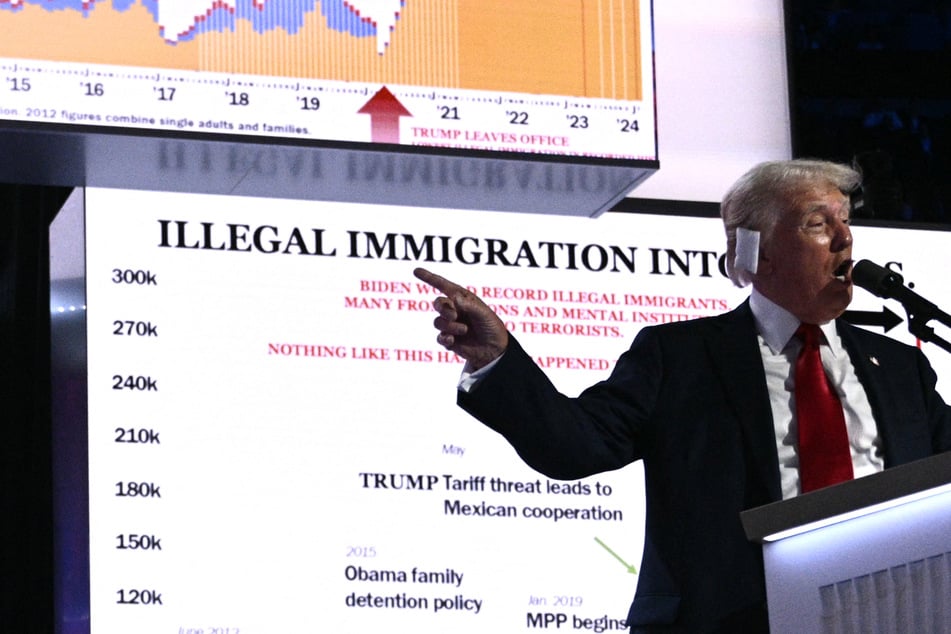Experts outline "devastating" potential effects of Trump's mass deportation plan in Senate session
Washington DC - President-elect Donald Trump's plans for the largest deportation of migrants in US history would crash the economy, sending inflation and unemployment soaring while undermining trust in the military, senators heard Tuesday.

The Republican leader has vowed to declare an immigration national emergency when he takes office in January, and use troops to round up and expel the country's estimated 13 million undocumented migrants.
But a Democratic-led Senate session focusing on ways the move could harm Americans heard from witnesses, including a former army chief and immigration experts, who said the proposals were a threat to the wellbeing of all Americans.
"The president-elect's mass deportation plans would crash the American economy, break up families and take a hammer to the foundations of our society by deporting nearly four percent of the entire US population," Aaron Reichlin-Melnick, a senior fellow at the nonpartisan American Immigration Council, told the Judiciary Committee hearing.
He estimated that mass deportations would cost nearly $1 trillion and shave 4.2% to 6.8% from the economy – matching the devastation wreaked by the global financial crash of 2008.
The US government has struggled for decades to manage its border with Mexico, and Trump claimed on the 2024 campaign trail that an "invasion" was underway by migrant rapists and murderers.
But Reichlin-Melnick said more than 90 percent of undocumented migrants have no criminal record and that most are either in education or employed in sectors such as construction, restaurants and childcare that would suffer under Trump's plan.
Retired US Army Major General Randy Manner said diverting the military to mass deportations would be divisive and harm operational readiness and morale, arguing that troops were not trained or equipped for immigration enforcement.
Republicans double down on anti-migrant stances despite warnings

The senators also heard from Foday Turay, a married father and an assistant district attorney in Philadelphia, who testified that he was born in Sierra Leone and only discovered he was undocumented when he applied for a driver's license.
"On a society level, mass deportation would be devastating," he told the panel.
"As a prosecutor, I know how delicate the ties between law enforcement and immigrants can be. If immigrants are afraid to cooperate with the police – or prosecutors like myself – because they're afraid of deportation, we all suffer."
But there was pushback from the Republicans' witnesses, including Patty Morin of Maryland, whose daughter Rachel was beaten, raped and strangled in a 2023 case in which the alleged murderer had been deported three times.
"At this very moment, I think deportation is necessary," she said.
"The American people should not feel afraid to live in their own homes," Morin added. "We need to follow the laws that are already on the books, we need to close our borders. We need to protect American families."
Art Arthur, of the Center for Immigration Studies, cautioned against critiquing a plan that Trump has not yet finalized – but added that whatever policy Trump settled on would "comport with law."
Lindsey Graham, the committee's top Republican, said most Americans were "sympathetic, kind-hearted people" who nevertheless felt betrayed by the immigration policies of President Joe Biden's administration, which saw soaring undocumented entries before a lull in 2024.
"If you're here illegally, get ready to leave. If you're a criminal, we're coming after you," Graham said.
Cover photo: Sarah Meyssonnier / POOL / AFP

